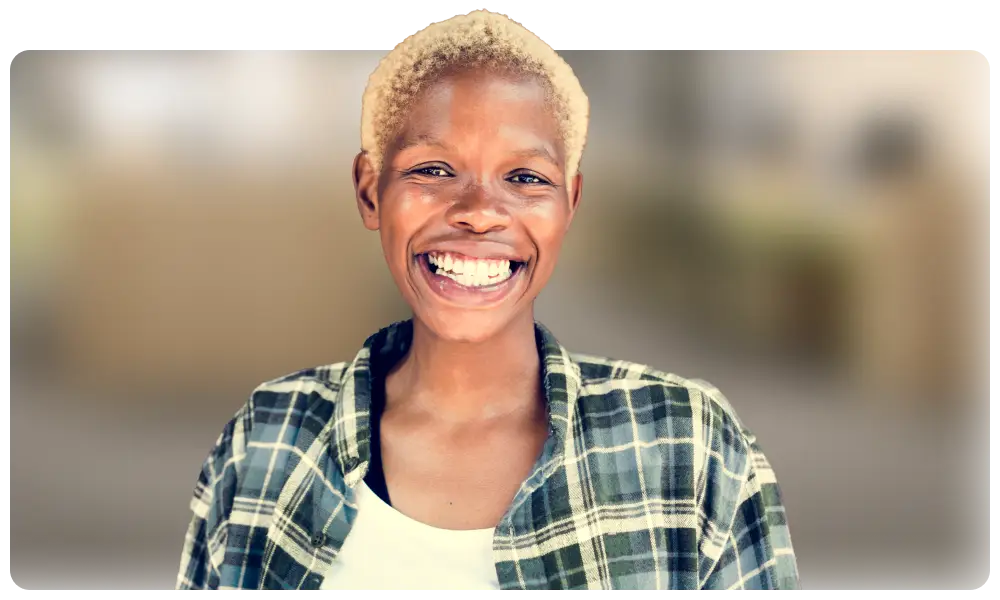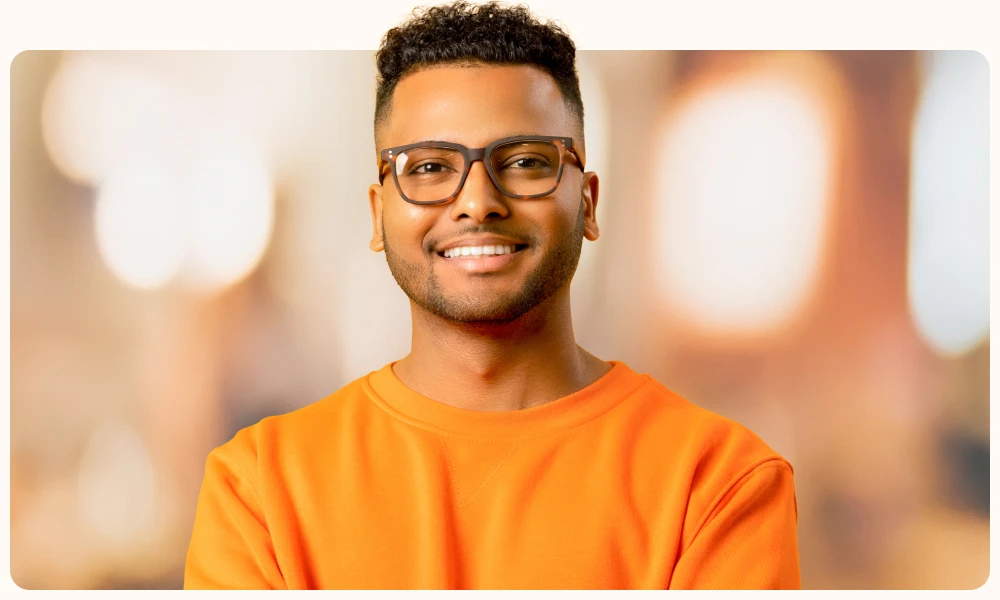If you’re looking to hire a bodyguard for your company, you should pay close attention to their credentials and certifications – but you also need to know what skills to look for and how to evaluate them.
Some states require security professionals to undergo mandatory training and testing. When recruiting a bodyguard, make sure they have the right certificates to work in your state – this will protect you from potential legal liabilities down the road.
But even though a candidate may have all the right certifications and an impeccable track record, you might still wonder as to how they measure on intangible skills, such as critical thinking, high-stress negotiations, actual physical strength, and determination to protect their client at all costs in the heat of the moment.
Albeit not a crystal ball, pre-employment testing will help you evaluate some of the most important skills a bodyguard should have – so, consider inviting your potential hire to go through a few quick skills tests.
This enables you to gather information on candidates’ hard-to-measure abilities, such as cognitive and communication skills, problem-solving and personality type.
This additional information will paint a pretty detailed picture of each one of your candidates and will serve as a great addition to the more formal data on their certifications and permits.
In this article, you’ll find out all you need to know about the bodyguard hiring process, such as:
What hard and soft skills to look for in your next bodyguard and how to assess them
What interview questions to ask
Where to find bodyguards
How much you can expect to pay
You’ll also find a sample job description you can adapt to your hiring needs.
Table of contents
- What is a bodyguard?
- Bodyguard hard skills
- Bodyguard soft skills
- How to test bodyguard skills
- Bodyguard interview questions
- Where to find bodyguards: Should you hire a bodyguard or work with an agency?
- How much does a bodyguard cost?
- Bodyguard job description template
- Hiring a bodyguard is easy when you pay attention both to the hard and soft skills
What is a bodyguard?
Whenever a company or individual feels that they are particularly exposed to potential threats, including harassment, theft, assault, stalking, or kidnapping they may consider hiring a bodyguard.
These professional security guards often have a military, law-enforcement, or special-forces background. They are charged with the responsible task of escorting their clients in their work and leisure travel, searching rooms, buildings, and venues before their clients arrive, and working with other professionals to develop an effective security strategy.
As a rule, security staff work to protect high-ranking officials, celebrities, or sometimes business people, including executives and CEOs of very large companies. A bodyguard may be hired to accompany the client and their family around the clock, work in shifts or only serve at specific events.
To better understand your needs and define the profile of a best-fit bodyguard you are looking for, ask yourself the following questions:
What kind of services are you looking to hire them for? Are you seeking to hire a team of bodyguards or a single person to accompany you? Will they work in shifts or are you looking to contract a security-guard agency? Do you want to hire a security professional who can double as a driver? What kind of threats are you looking to mitigate? Have there been any threats of physical violence against you and your loved ones?
When do you need your bodyguard to accompany you? Consider flexible hours, full-time, part-time or anything in between. It's worth talking with your security personnel at your workplace and residence. You may not require the bodyguard to be present at the locations that are already sufficiently protected by other agents.
Do you seek unarmed or armed bodyguards? Carrying firearms is a last-resort measure, and you should treat hiring such personnel with special caution. Elite-level bodyguards would never use the lethal weapons they carry outside of the situations when they absolutely have to.
This will help you to determine what type of bodyguard is best suited for your needs. Below, we'll dig deeper into the actual skills and personality traits you want your perfect candidate to have.
Bodyguard hard skills
Bodyguards are primarily focused on preventing threats and ensuring their clients’ safety and security.
Physical training and excellent situational awareness are essential for any personal guard; the role requires them to be always on the go and ready to react.
The best bodyguards will also have an extensive track record of successful assignments in high-risk environments. Here's a list of the core skills that matter most:
Combat skills and physical fitness
In certain situations, bodyguards may need to confront violent individuals or organized groups. To protect their clients, they need to excel at close combat and mitigation of violent situations when fleeing is not possible.
Firearm training and certification
High-profile individuals may be confronted with assault or theft risk. Hiring an armed bodyguard creates an effective defense line. Using firearms in line with the law requires extensive training and certification. Ongoing annual training is also regulated at the state level.
First aid and CPR training
Most states require that registered bodyguards undergo training in first aid and CPR. The unique skills help the guards be ready to perform cardiopulmonary resuscitation combined with artificial ventilation and potentially save the life of a victim.
Security planning
A qualified security professional always plans ahead of the meetings and other events that their client engages in. They’ll have several plans to react to a threat or emergency and work with other security professionals to ensure their client is always safe.
Excellent driving skills
Sometimes, driving is the only way to flee a potentially dangerous situation. So, bodyguards need to be able to drive extremely well even in high-stress environments. For this, they might require additional training in defensive and evasive driving.
Bodyguard soft skills
Comparing candidates’ core skills is the first step, but you should always consider their soft skills, too.
Bodyguards stay out of the limelights, securing the venue and staying attentive for potential threats. They are good at blending in and attracting as little attention as they can.
Here are the most important intangible skills and personality traits that you should look for in a bodyguard:
Reliability and integrity
Look for security agents who have proven themselves as reliable and trustworthy in highly stressful conditions. A client needs to trust their bodyguard fully and know they would react instantly in case of an emergency.
Use reference checks and recommendations to see how well candidates have performed in previous assignments.
Balanced temperament and excellent communication skills
A well-trained bodyguard will find it easy to chat with anyone, collaborate with local law enforcement or other security staff, and diffuse a potentially violent situation without resorting to physical confrontation.
Bodyguards need to have a balanced temperament and be able to quickly analyze any situation rationally, without giving in to emotions.
A good personality match
As a client spends a lot of time accompanied by their bodyguard, the right personality match is a must-have. A friendly, professional and communicative security guard will help their client feel relaxed, while ensuring they’re safe at all times.
Make sure to interview candidates to see how they view their role and determine whether they are going to be a good addition to your existing team.
How to test bodyguard skills
Both soft and hard skills are very important when choosing a new bodyguard for your team, but it may be difficult to assess the skills just by looking at resumes or running interviews.
So, in addition to checking your next bodyguard’s certifications and credentials, it's worth evaluating their abilities.
You can use up to five tests from TestGorilla’s test library to create an in-depth assessment of your candidates’ intangible skills to make sure they have what it takes to keep you or your clients safe. You can even add qualifying or custom questions to your assessment to make sure all applicants meet your criteria.
Below you'll find the top picks from the test library that you can use to streamline your bodyguard recruitment process:
Critical thinking: Quickly figure out whether candidates have good critical-thinking skills with this test. The successful protection of clients depends on making the right judgment calls while working in chaotic, high-stress environments. This assessment enables you to determine how effectively candidates analyze information and interpret data to make the correct decisions.
Communication: Run this assessment to evaluate how well your future bodyguard will work with the rest of your team and in different social situations. Communicating your thoughts clearly is essential for successful teamwork. The test also helps you measure candidates’ business-etiquette and active-listening skills and whether they know how to interpret non-verbal cues successfully.
Attention to detail: With this test, you’ll be able to assess whether applicants are able to pay close attention to visual details when entering a new, unfamiliar place. For the role of a bodyguard, that skill is essential.
Culture add: Fill out a survey to create a customized culture-add test and identify the ideal candidate for your team. This helps choose security professionals who are aligned with your values and quickly build a highly cohesive team. Personal security agents spend a lot of time with clients, so your applicants’ culture-add potential is an important consideration for this profession.
You can add personality tests to this list to evaluate candidates’ behavior and personality fit for the role.
While personality tests shouldn’t be used as a standalone evaluation tool, they can be an excellent addition to your hiring strategy, enabling you to gain in-depth insights into applicants’ way of thinking and personality traits.
To find out more, check out our detailed guide to personality tests in recruitment.
Bodyguard interview questions
Once you have identified the best candidates with the help of skills tests, your next step is to conduct a structured interview, so that you can gather more in-depth information on your candidates and pick the best person for the role.
Here are some questions you can ask applicants:
Why did you choose the role of a bodyguard? What is the best and the worst part of the job?
Are you comfortable working with other members of a security team?
Are you familiar with local laws and regulations related to personal protection?
Are you trained in defensive driving?
Are you comfortable traveling with clients if needed?
How do you stay physically fit for the demands of this role?
Have you ever had to physically intervene to protect a client? What happened?
How do you differentiate between an actual threat and a false alarm?
What would you do if a client wants to do something risky against your advice?
How do you prepare when traveling to a foreign country with different laws and security standards?
What are, according to you, the primary moral and ethical considerations of the role of a bodyguard?
How do you handle emotions that might affect your judgment?
If you need more ideas about what to ask, check out our behavioral interview questions for all roles.
Where to find bodyguards: Should you hire a bodyguard or work with an agency?
Recruiting security professionals requires in-depth knowledge of various matters, such as certification, ongoing training, compensation and benefits, insurance and many more.
If you’re hiring for a large organization that’s able to absorb the costs of or in case you need to recruit an entire security team, then it might make sense to hire bodyguards directly. Otherwise, it might be a good idea to look for a security agency that has bodyguards on payroll and can provide services tailored to your needs.
Agencies take care of additional training, such as in evasive driving or physical combat, for example. You can also ask that the assigned bodyguards have experience with previous assignments similar to yours – or even use skills tests to evaluate candidates.
An agency can always provide you with substitute security agents in case that your primary bodyguard is on sick leave or vacation. All in all, hiring a bodyguard via a staffing agency is a great option in most instances.
How much does a bodyguard cost?
The median salary of a bodyguard is around $70,000 per year in the US – but if you’re hiring an agency, the actual costs will vary based on the services you need. You can compare cost estimates from a few agencies to get an idea of the costs of hiring a bodyguard in your area.
Additionally, you might also not need someone full-time but just to accompany you when you travel or attend high-profile meetings. This will help reduce costs.
The actual pay varies heavily depending on the skills, experience, and the specific needs you have.
Bodyguard job description template
Position: Bodyguard
Location: [City, State]
Type: [Full-Time/Part-Time/Contract]
[Provide a brief overview of your company, including its mission and values]
We are looking for a skilled bodyguard to ensure the safety and security of our clients. The ideal candidate will possess a keen eye for detail, a strong sense of responsibility, and the skills to protect our clients from potential threats while maintaining discretion and professionalism.
Responsibilities
In this role, you will be required to:
Accompany clients on public outings, meetings, travel, and other activities as required and protect them from threats, harm, or harassment at all times
Handle unwanted attention, including from the media or aggressive individuals, calmly and professionally
Plan and review security measures and routes
Assess threats and security vulnerabilities
Operate security devices and equipment, including security vehicles
Collaborate with other security staff to ensure a coordinated and effective security strategy
Report any security-related incidents or risks to authorities as needed
Stay updated on local laws related to security and protection services
If needed, provide first aid in emergency situations
Qualifications
We're looking for a person who has:
Prior experience as a bodyguard, security officer, or in a related security role
Up-to-date certification, such as [describe required certification]
Certification in first aid and CPR
Knowledge of public safety and security protocols
Good physical fitness and the ability to handle stress
Strong problem-solving and decision-making skills
A high level of integrity and discretion
A valid driver's license and clean driving record
Proficiency in using security equipment and technology
Benefits
[Describe any benefits your company offers, such as health insurance, paid leave, training opportunities, travel allowances, etc.]
Hiring a bodyguard is easy when you pay attention both to the hard and soft skills
Now you know what to look for in your future bodyguard and how to test for their skills and aptitudes.
Recruiting a personal protection agent is easy when you have a clear and structured hiring process in place. To be able to compare apples to apples, during your bodyguard recruitment process you need to gather factual information on your candidates' certifications, credentials and skills.
Use pre-employment testing to obtain this information with minimum effort. Applicants will need 10 to 50 minutes to complete an assessment (based on the type and number of tests); once you receive their results, you simply need to compare them and see who is the best fit for the role.
Sign up for a free demo today to see how easy it is to evaluate applicants’ skills and hire the best person for any role – including that of a bodyguard or a security guard.
Related posts
Hire the best candidates with TestGorilla
Create pre-employment assessments in minutes to screen candidates, save time, and hire the best talent.
Latest posts
The best advice in pre-employment testing, in your inbox.
No spam. Unsubscribe at any time.

Hire the best. No bias. No stress.
Our screening tests identify the best candidates and make your hiring decisions faster, easier, and bias-free.
Free resources
This checklist covers key features you should look for when choosing a skills testing platform
This resource will help you develop an onboarding checklist for new hires.
How to assess your candidates' attention to detail.
Learn how to get human resources certified through HRCI or SHRM.
Learn how you can improve the level of talent at your company.
Learn how CapitalT reduced hiring bias with online skills assessments.
Learn how to make the resume process more efficient and more effective.
Improve your hiring strategy with these 7 critical recruitment metrics.
Learn how Sukhi decreased time spent reviewing resumes by 83%!
Hire more efficiently with these hacks that 99% of recruiters aren't using.
Make a business case for diversity and inclusion initiatives with this data.


















